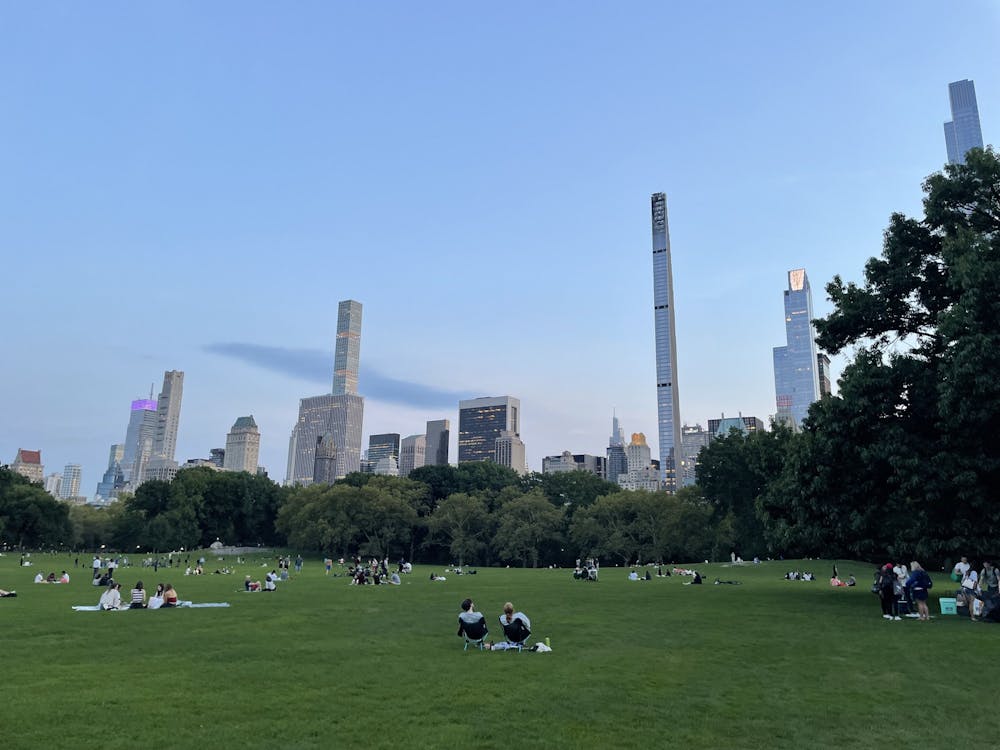These days, I feel like my existence is split between the abstract and the concrete.
On Tuesday mornings, I debate vast, vague ideas that swirl at the foundations of ethics and moral thought in my philosophy seminar. On Friday mornings, I take the Dinky to Princeton Junction, then the Northeast Corridor local train past New Brunswick, Rahway, and Secaucus until I arrive at Penn Station in New York City.
On Tuesdays, I brew coffee in the Keurig machine on the third floor of the University Center for Human Values while discussions about consequentialism, the reflective equilibrium, and hedonistic theories of value flow between no fewer than five professors from the philosophy department. On Fridays, I wander through the Asian street food stalls of Queens, picking up snatches of rapid-fire Chinese and searching for the cuisine I grew up with. I peruse used bookstores in the East Village, browsing vintage copies of my favorite poets.
As a prospective philosophy major, this mode of living feels necessary. I don’t think I could engage in philosophy without also grounding myself in my own background and the backgrounds of others.
Philosophy, as an academic discipline, frequently refuses to confront the external world. Never mind the lack of diversity in the field; never mind philosophers insisting on expressing their thoughts in the most abstruse of jargon. Even on its own, philosophy is, by all accounts, preternaturally detached from reality.
For example, take Sidgwickian utilitarianism, a moral theory which urges us to tackle ethics from “the point of view of the universe” — that is, to consider what is good for everyone in the entirety of the universe from an impartial outsider’s perspective. At such a wide scale and scope, individual needs, desires, and circumstances are irrelevant; morality exists in a separate, detached vacuum of its own.
In some ways, I certainly have a skewed perspective: I choose to focus on metaethics, one of the more abstract branches of philosophy. I know what I signed up for, and there’s plenty to love about working in such theoretical terms.
Yet despite this awareness, there’s some part of me that wonders if philosophy is somehow contrary to my own identities. Philosophy mercilessly bulldozes over the individual backgrounds of its practitioners, rendering a view of the world from an objective point of view that leaves lived experiences behind at the door. Even the most famous of philosophers aren’t spared this treatment: when reading papers in my philosophy classes, I cut ideas and concepts out like newspaper clippings, almost never bothering to consider the historical and socioeconomic contexts in which these theories were proposed.

When I am back home in California, I am “Qiao Qiao” to my family, the Chinese nickname that offers proof of my status as a second-generation Asian American. When I am here at Princeton, I am Joshua Yang, Class of 2025, prospective philosophy major with particular interests in metaethics, logic, and value theory. I’m not sure any of that matters when I’m raising my hand to ask a question or raise an objection in the third-floor seminar room in Laura Wooten Hall on Tuesday mornings.
So on Fridays, to balance out my education, I venture into the city. I order ‘fuqi feipian,’ my favorite spicy Sichuan dish, in Flushing; I take myself on a picnic to people-watch in Central Park. Once, I even wandered into an ornate mansion on Fifth Avenue with a Princeton crest emblazoned on its granite facade out of curiosity. (It turns out I’d strolled into the University Club, a private club started in the 19th century by Ivy League alumni. I wasn’t welcomed in.)
Unlike in philosophy seminars, there’s no syllabus, no structured academic debates to be had in New York. Instead, there’s only human life to experience — both by myself and with others. In between moments of serendipity, I find lessons wedged everywhere: I practice my terrible Spanish chatting with the Colombian immigrant selling boba in Jackson Heights, Queens, and my even worse French in the Albertine bookshop on the Upper East Side. Walking some forty blocks through Midtown with a heavy backpack taught me exactly where my patience ends; re-reading English translations of Rimbaud reminded me how much I love poetry. Wandering through a big city alone, eating dinner at a table for one in K-Town, and thoroughly enjoying the experience, showed me that I’ve grown comfortable with myself in ways I couldn’t have imagined just a few years ago.
Being in New York has nothing to do with philosophy itself — instead, removing myself from the Orange Bubble, if only temporarily, allows me to explore the world and my own identity in a way that’s impossible through philosophy. What I do on my Fridays has little bearing on my Tuesdays, and vice versa, yet I’ve found that it’s only through the dichotomy of these dual existences that I can be all of myself.

So I go on brewing coffee with my beloved Keurig; I go on showing my ticket (often free, supplied courtesy of Princeton!) to the Dinky conductor; I move through these almost contradictory spheres in Princeton and New York City as a transient student and observer, confident I’ll soon be back. And I will: next week always comes soon enough.
Joshua Yang is a contributing writer for The Prospect at the ‘Prince.’ He can be reached at joshuayang@princeton.edu or on Twitter at @joshuaqyang.
Self essays at The Prospect give our writers and guest contributors the opportunity to share perspectives. This essay reflects the views and lived experiences of the author. If you would like to submit a Self essay, contact us at prospect@dailyprincetonian.com.








